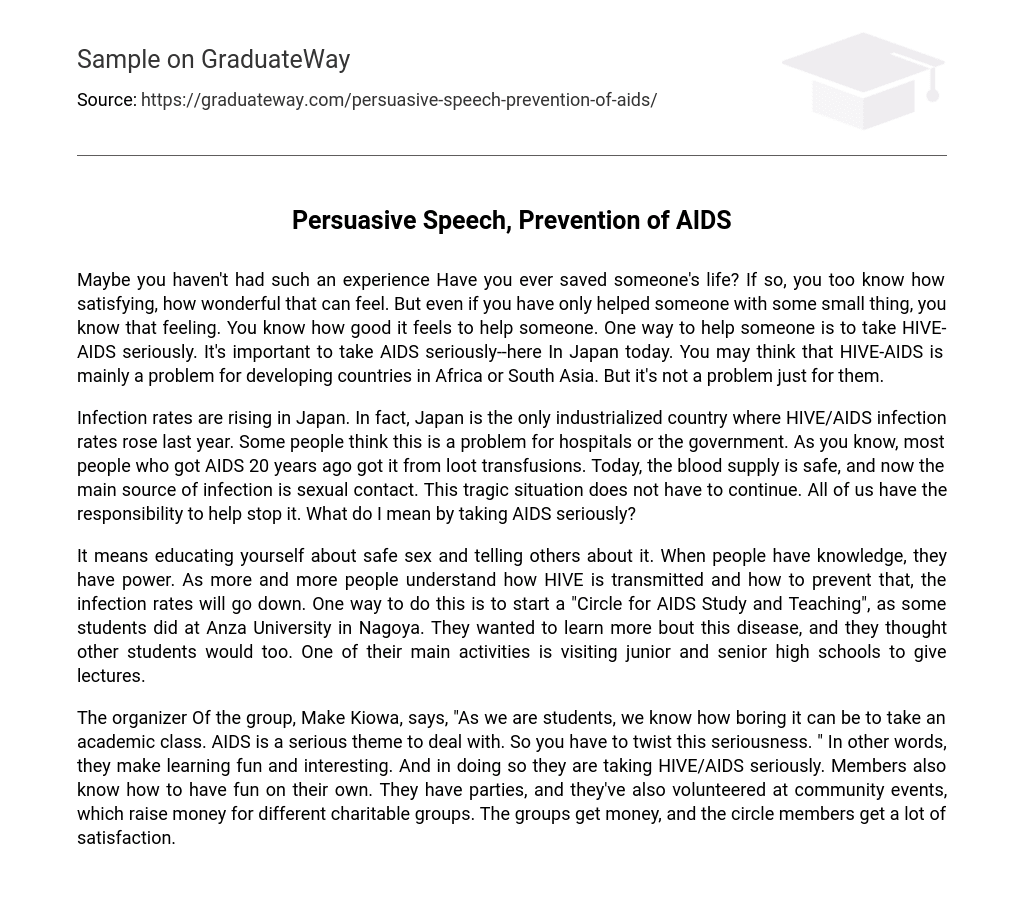Maybe you haven’t had the chance, but have you ever saved someone’s life? If so, you comprehend the immense satisfaction and happiness that accompanies it. Even if you’ve only aided someone with a minor task, you understand that sentiment. You are aware of the joy that comes with helping others. One method to create an impact is by giving due importance to the issue of HIV-AIDS. It is essential to acknowledge the significance of AIDS in present-day Japan. While you may believe that HIV-AIDS mainly impacts developing nations in Africa or South Asia, it is not exclusively their concern.
In Japan, infection rates are increasing, making it the only industrialized country where HIVE/AIDS infection rates escalated last year. While some individuals view this as a concern for hospitals or the government, it is essential to acknowledge that the majority of AIDS cases from two decades ago were contracted through blood transfusions. Presently, the blood supply is secure, and sexual contact has become the primary mode of infection. This distressing circumstance can be halted with collective efforts. Therefore, we all bear the responsibility to address AIDS seriously.
It means becoming educated about safe sex and educating others about it. Knowledge empowers individuals. When more people comprehend how HIVE is transmitted and how to prevent it, the infection rates will decrease. An effective approach is to establish a “Circle for AIDS Study and Teaching” like the students at Anza University in Nagoya did. They desired to gain more information about this disease and believed other students would as well. A significant part of their initiative involves visiting junior and senior high schools to deliver lectures.
The group organizer, Make Kiowa, emphasizes the importance of making academic classes more engaging and enjoyable for students. They recognize that AIDS is a serious topic but believe that by adding an element of fun and excitement, they can effectively address it. This approach demonstrates their commitment to treating HIV/AIDS seriously while making the learning experience interesting. In addition to their academic pursuits, group members also know how to have a good time. They organize parties and actively participate in community events aimed at raising funds for charitable organizations. The satisfaction gained from supporting these groups is mutually beneficial, as the organizations receive financial assistance while the members of the group experience a sense of fulfillment.





